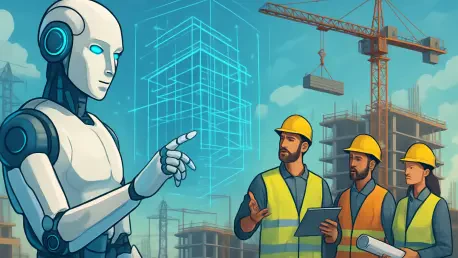The construction industry stands at a pivotal crossroads as it embarks on one of its most significant transformations in recent years. With the integration of advanced technologies, including artificial intelligence and digital modeling, the traditional landscape is swiftly evolving. This environment is increasingly driven by innovations that promise greater efficiency, safety, and sustainability. These advancements aim to address the pressing challenges of productivity, resource management, and environmental impact that currently confront one of the largest industries globally.
Overview of the Construction Industry’s Current State
The construction industry is recognized as a cornerstone of economic growth and development. Its expansive scope encompasses multiple segments, from residential and commercial builds to infrastructure projects. As urbanization accelerates, the demand for smarter, more sustainable construction solutions grows. Technological influences, from Building Information Modeling (BIM) to smart building solutions, play a crucial role in redefining practices. Leading market players are leveraging these advancements while navigating regulatory frameworks that aim to enhance safety, efficiency, and environmental compliance.
Key Trends and Innovations
Emerging Trends in the Construction Sector
Current trends reshaping the construction industry revolve around digitalization and sustainability. Technologies such as AI significantly impact design precision, decision-making efficiency, and project safety. These innovations align with evolving consumer preferences, which increasingly favor eco-friendly and smart solutions. Market drivers, such as the demand for sustainable urban development and smart cities, open up new opportunities for technology integration and collaboration across the sector.
Market Data and Future Projections
Recent market data indicates a robust growth trajectory for the construction sector as digital adoption increases. The trend toward smart technology adoption suggests promising performance indicators and optimistic growth forecasts. This digital evolution is expected to continue expanding, setting the stage for a new era where AI and automation become standard practices in operational procedures. These insights reveal a future rich with opportunity and potential, highlighting the need for strategic planning in adapting to these changes.
Challenges and Solutions in Digital Transformation
The journey toward full digital integration is not without obstacles. Technological challenges include high initial costs and the need for skilled labor. Market-driven issues may involve reluctance to adopt new methods due to perceived risks. However, solutions are emerging, such as training programs to address skill shortages and government incentives to alleviate costs. Embracing these strategies can ease the digital transition process, fostering innovation and long-term competitiveness.
Regulatory Impacts on Digital Adoption
Regulations significantly impact the pace and scope of digital adoption in construction. Compliance with laws ensures safety, quality, and sustainability standards. Changes in regulation can either impede or accelerate digital adoption, influencing industry practices substantially. Security measures, particularly in data management and project execution, are of paramount importance, ensuring that digital frameworks meet stringent regulatory requirements and protect stakeholder interests.
Future Directions and Innovations
The future of the construction industry lies in its ability to harness new technologies and address emerging consumer demands. AI, automation, and sustainable building practices are set to redefine industry processes. Anticipating potential market disruptors and considering global economic influences will guide strategic planning and investment decisions. As the industry evolves, balancing innovation with regulatory compliance and consumer needs will be crucial to achieving sustainable growth.
Conclusion and Industry Forecast
The findings highlight an industry on the brink of a digital revolution, propelled by AI’s integration and growing digital culture. Moving forward, prioritizing innovation in sustainable, technologically advanced construction solutions will be vital. By remaining adaptable to regulatory changes and focusing on skill development, the construction sector can secure a thriving future characterized by enhanced efficiencies and groundbreaking advancements. Stakeholders are encouraged to invest in these technology-driven opportunities, laying a foundation for transformative growth and progress.









